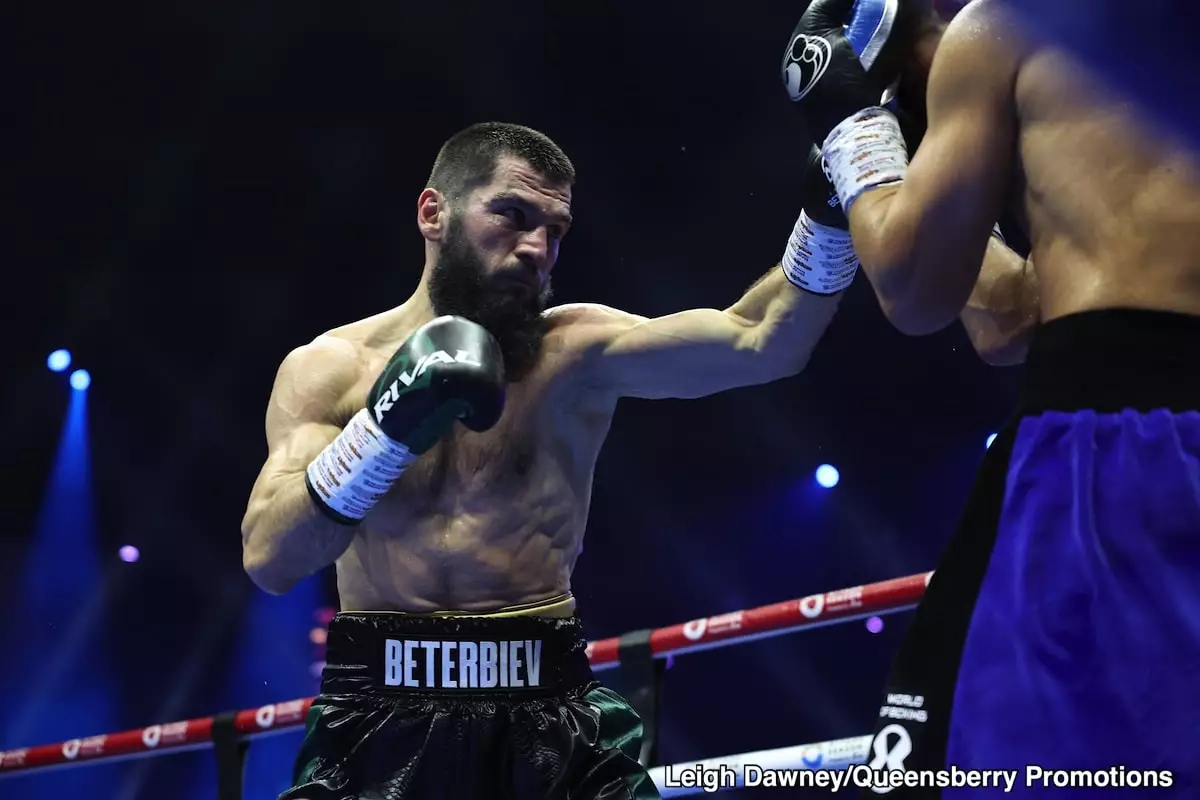In the world of boxing, few events stir as much debate as the sanctioning body’s rulings. The latest controversy involves Bob Arum, a prominent promoter in the sport, who has expressed his ire over the International Boxing Federation’s (IBF) directive for Artur Beterbiev to defend his undisputed light heavyweight title against relative unknown Michael Eifert. This decision has created a rift between the expectations of boxing fans and the regulatory entities that govern the sport.
Fury Over Title Defense Against Eifert
Bob Arum, who represents Beterbiev, has characterized Eifert—a fighter with a modest record of 13 wins and only 1 loss—as a “non-entity.” Arum’s frustration stems from the belief that requiring Beterbiev, an undefeated champion with an impressive record of 21 wins and 20 KOs, to face someone deemed inconsequential undermines the significance of holding multiple titles. Arum’s statement points to a perceived disconnect between the buzz generated from Beterbiev’s recent victory over Dmitry Bivol and the IBF’s insistence on prioritizing mandatory defenses that do little to enhance the sport’s profile.
Moreover, this situation raises questions about the impact of mandatory defenses on fighters vying for recognition and prestige. After an exhilarating bout where Beterbiev showcased his skills, the call for a fight against Eifert is seen by many as a step backward. Enforcing the status quo becomes particularly vexing when the fight community desires to see the champion prove his mettle against bigger names like Canelo Alvarez, Dmitry Bivol, or David Benavidez.
Arum’s critique of the IBF’s mandate invites broader discussions about the promotional landscape within boxing. There’s a significant appetite among fans for high-profile bouts that draw substantial attention to the sport, which includes potential matchups against Canelo, who is recognized as a marquee fixture in boxing, or a rematch with Bivol, who many consider to have had a contentious bout with Beterbiev. The promoter has noted that a fight against Canelo would not only captivate audiences but also enhance revenue through pay-per-view sales, reflecting the business side of boxing that often clashes with regulatory demands.
Looking ahead, there remains uncertainty regarding Beterbiev’s next move. There are murmurs about possible negotiations for a rematch with Bivol—a matchup that, while desired by some fans, may not carry the same allure given Bivol’s perceived less entertaining fight style. Meanwhile, options like Canelo Alvarez and David Benavidez stand as tantalizing prospects that could reinvigorate Beterbiev’s profile and further legitimize his status as an elite fighter.
Ultimately, the unpredictable dynamics in boxing indicate a need for reform and flexibility within these organizations. Expected critically by insiders like Arum, the notion that champions must defend against lower-tier fighters immediately following significant victories reveals flaws in the existing framework that governs title defenses. Advocates for a more progressive approach in boxing argue that the sport should prioritize compelling matchups over rigid adherence to regulations that can stifle excitement and fan engagement.
As the situation unfolds, all eyes are now on Arum and Beterbiev. Fans and analysts alike will be watching closely to see whether the champion will adhere to the IBF’s demands or seek to pave his own path in pursuit of legendary status within the boxing community.


Leave a Reply